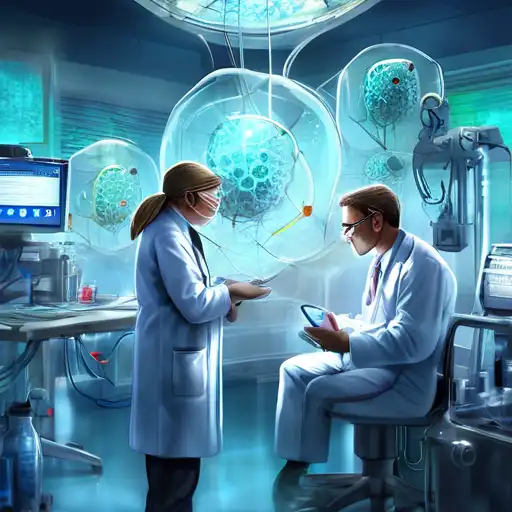Revolutionary Advances in Biotechnology Transforming Healthcare
In recent years, biotechnology has emerged as a beacon of hope in the medical field, offering groundbreaking solutions to some of the most pressing health challenges. From gene editing to personalized medicine, these innovations are not just enhancing the quality of life but are also saving lives in ways previously unimaginable.
Gene Editing: A New Dawn for Genetic Disorders
One of the most talked-about breakthroughs in biotechnology is CRISPR-Cas9, a gene-editing technology that allows scientists to alter DNA sequences and modify gene function. This revolutionary tool has the potential to cure genetic disorders such as sickle cell anemia, cystic fibrosis, and even certain types of cancer. By precisely targeting and correcting genetic mutations, CRISPR is paving the way for a future where genetic diseases are a thing of the past.
Personalized Medicine: Tailoring Treatment to the Individual
Another significant advancement is the development of personalized medicine. This approach tailors medical treatment to the individual characteristics of each patient, taking into account their genetic makeup, lifestyle, and environment. For example, in oncology, personalized medicine is being used to identify the most effective cancer treatments for individual patients, significantly improving survival rates and reducing unnecessary side effects.
Biopharmaceuticals: The Next Generation of Drugs
Biopharmaceuticals, or biologics, are medical drugs produced using biotechnology. These include vaccines, blood components, gene therapies, and recombinant therapeutic proteins. Unlike traditional drugs, biopharmaceuticals are derived from living organisms, offering more targeted and effective treatments for diseases such as diabetes, rheumatoid arthritis, and multiple sclerosis.
Artificial Organs and Tissue Engineering
The field of tissue engineering and the development of artificial organs are also making strides in saving lives. Scientists are now able to grow tissues and even whole organs in the lab, which can be used for transplants. This not only addresses the shortage of donor organs but also reduces the risk of rejection, as these organs can be grown from the patient's own cells.
These biotechnology breakthroughs are just the tip of the iceberg. As research continues and technologies advance, the potential to save and improve lives is boundless. The future of healthcare is here, and it is being shaped by the incredible innovations in biotechnology.
For more information on how biotechnology is revolutionizing healthcare, check out our articles on gene therapy and personalized medicine.
